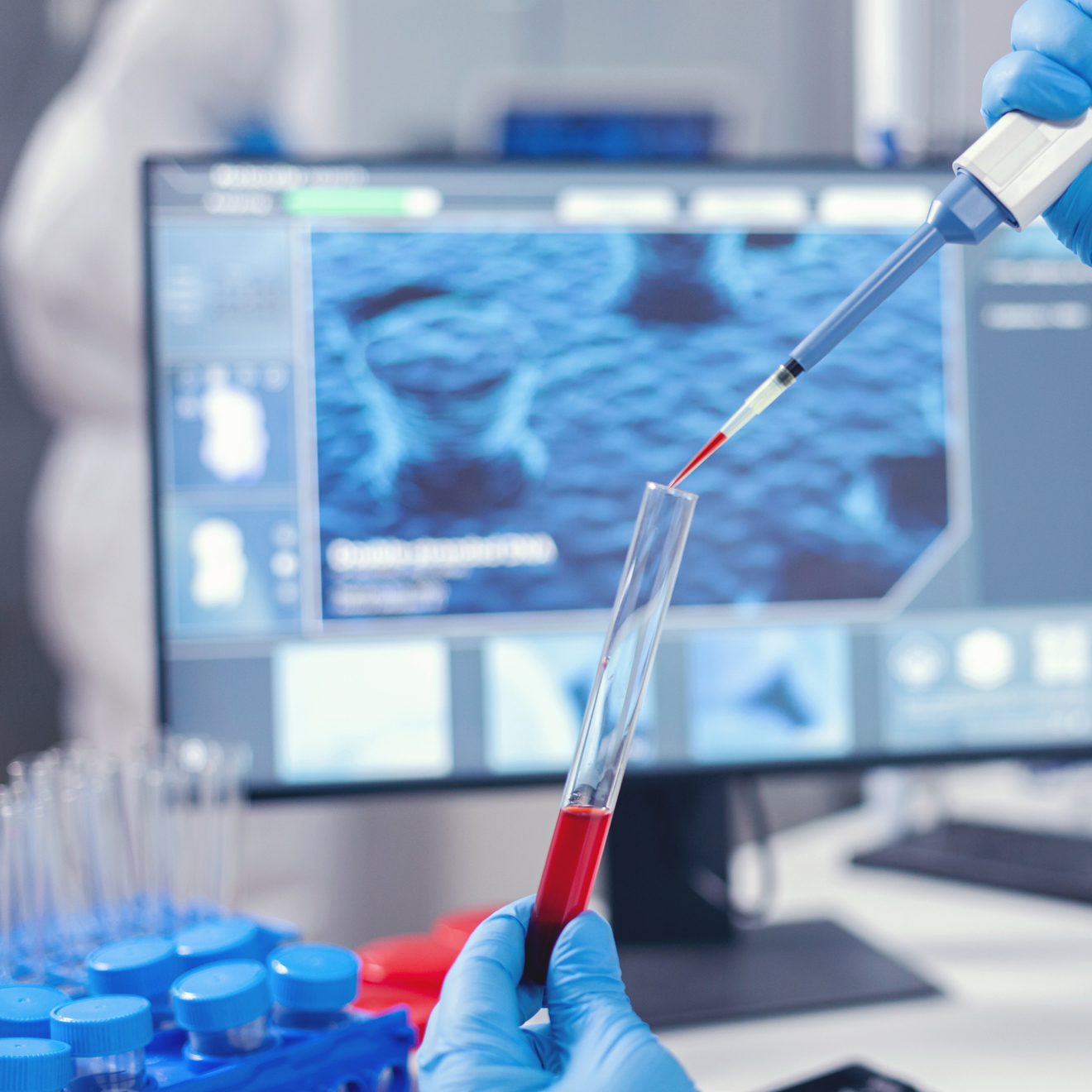Biological testing is a general term that covers many different types of tests that can be performed on blood, urine and tissue samples.
Depending on the test, it can provide information about the human genome or the state of a patient’s organs or immune system.
Blood tests are commonly used to detect certain infectious diseases, such as HIV and hepatitis B and C. They are also used to detect drug use and disease markers in pregnant women.
A urine test is usually required to check for infection or pregnancy in otherwise healthy people. A urine test can also help determine whether a person has kidney stones or diabetes.
PCR (polymerase chain reaction) is a test that looks for very small amounts of viruses or bacteria in a person’s body. It is used to check for infections such as tuberculosis, salmonella, chlamydia, syphilis, staphylococcus and Lyme disease.
All the teams in our clinic are committed to ensuring the quality and safety of care on a daily basis.
120 Hospital beds, 32 Outpatient beds, 15 Operating theaters, 128-strip scanner, Ultrasound, Doppler, …
Emergency service, reception 24 hours a day, 7 days a week, with personalized care for all our patients.
Blood analysis (supported by our biological research department) is an important part of monitoring your health. It allows doctors to detect a wide range of conditions and diseases. A blood test is one of the basic tests carried out during a medical examination. It determines the presence or absence of various substances in the blood.
A blood test is a laboratory test that measures the amount and type of substances in the blood. These substances include red and white blood cells, platelets, proteins, hormones, minerals and glucose. The results are often used to help diagnose conditions such as infections or cancer, evaluate the effectiveness of treatments, and monitor the health of people with chronic diseases.
Blood tests are used to diagnose, monitor and manage many conditions. These include:
– Anaemia
– Arthritis
– Asthma
– Cancer
– Diabetes mellitus
– Heart problems (cardiovascular disease)
– Kidney disease and kidney failure (kidney disease) – including kidney disease caused by diabetes or high blood pressure (hypertension)
– Liver disease – including liver fibrosis (scarring)
– Thyroid problems
The blood test may be performed as part of a routine physical examination, or it may be needed for a specific condition. It is important to note that not all laboratories offer the same type of test. It is therefore important to discuss your concerns with your doctor before undergoing any procedure.
Types of blood tests
There are several types of blood tests that may be performed during your visit to the doctor. These include the following analysis:
– Complete blood count (CBC) – This is one of the most common tests that doctors do regularly to check for signs of infection or anaemia.
– Comprehensive metabolic panel (CMP) – This test measures levels of electrolytes (sodium, potassium and chloride), glucose (blood sugar), liver enzymes and many other substances in the blood to see if organs in the body have been damaged. For example, high potassium can indicate kidney damage, while high sodium can indicate dehydration from vomiting or diarrhoea.
Urinalysis (supported in our Biological Exploration Department) is the general term for all urine tests performed in the laboratory. The purpose of urine testing is to assess a person’s health, detect abnormalities or unwanted substances in the body, monitor the success of treatment or diagnose a disease. The results of these tests are called urine test results and are used by doctors to help diagnose kidney, liver and bladder diseases and conditions.
Urine analysis is an important part of medical diagnosis as it provides information about the condition of the kidneys, bladder, ureters (the tubes that carry urine from the kidneys to the bladder) and prostate, as well as possible problems with the liver or adrenal glands.
It is also used to monitor the treatment of kidney disease (nephrology), diabetes mellitus, high blood pressure, gout, rheumatoid arthritis and other conditions affecting the urinary system.
PCR analysis (part of our biological research department) is a common tool used by biologists to amplify specific segments of DNA. It was first developed by Kary Mullis in 1983 and has since become a reliable and widely used technique. PCR can be used to determine the presence of a particular gene or mutation, to identify the species or type of a particular sample, or to measure the number of copies of a particular gene.
There are two main types of PCR: Southern blotting and polymerase chain reaction. In both cases, the first step is to isolate the target sequence of DNA or RNA (deoxyribonucleic acid). The target sequence may be present in an entire cell or in a small fragment of tissue taken from a larger sample.
PCR is widely used in molecular biology to amplify genetic material for further analysis in research, diagnosis and forensic applications.

LIVER BIOLOGICAL EXPLORATION
Liver biological investigation, also known as liver screening or biochemical screening of the liver, is a set of blood tests and measures to assess an individual’s liver (liver) function. These tests can detect liver abnormalities or dysfunction, diagnose liver disease and monitor the progression of these conditions.
The main components of liver biology typically include:
Transaminases: These are liver enzymes, such as alanine aminotransferase (ALT) and aspartate aminotransferase (AST), whose elevated levels may indicate inflammation or liver damage.
Bilirubin: Bilirubin is a biliary pigment produced by the breakdown of red blood cells. High levels of bilirubin in the blood may indicate liver or gallbladder dysfunction.
Alkaline phosphatase (PAL): This enzyme is found in liver and bile duct cells. Elevated levels may indicate problems with the gallbladder or liver.
Liver proteins: Tests generally measure levels of proteins produced by the liver, including albumin and prealbumin. Abnormal levels may be associated with liver failure.
Clotting factors: Clotting factors depend on the liver for their production. Abnormalities in these factors may indicate impaired liver function.
Gamma glutamyl transferase (GGT): This enzyme is often used to assess biliary and liver function.
Liver biological exploration is frequently performed when investigating the cause of symptoms such as abdominal pain, jaundice, persistent tiredness, abnormalities in blood tests, or when following up patients with known liver disease.
Depending on the test results, additional tests such as ultrasound, liver biopsy or medical imaging may be required to make an accurate diagnosis and develop an appropriate treatment plan.
Doctors often perform proteinuria tests to assess kidney health and detect early signs of kidney disease. Testing for proteinuria can also help diagnose conditions such as lupus nephritis, glomerulonephritis, pyelonephritis and diabetic nephropathy.
PROTEINURIA ANALYSIS
Proteinuria is a condition in which the amount of protein in the urine is higher than normal. It can be caused by kidney disease, diabetes and other conditions.
Proteinuria is measured in milligrams of protein per decilitre (mg/dl) of urine. Normally, an adult’s urine contains less than 150 mg/dl of protein. Higher proteinuria at this level may be a sign of kidney disease or another condition.
Nos autres centres d'explorations
Radiology, or radiological examination, is the process of using ionising radiation and its interaction with matter to produce images of the inside of the body.
Gastroscopy is an invasive medical procedure used to diagnose and treat diseases of the gastrointestinal tract.
Dialysis is a procedure in which a machine is used to replace kidneys that have stopped working. Dialysis can be used by patients with kidney failure, kidney disease or perioperative surgery.
In medicine, cardiac exploration is a surgical procedure involving the heart.






